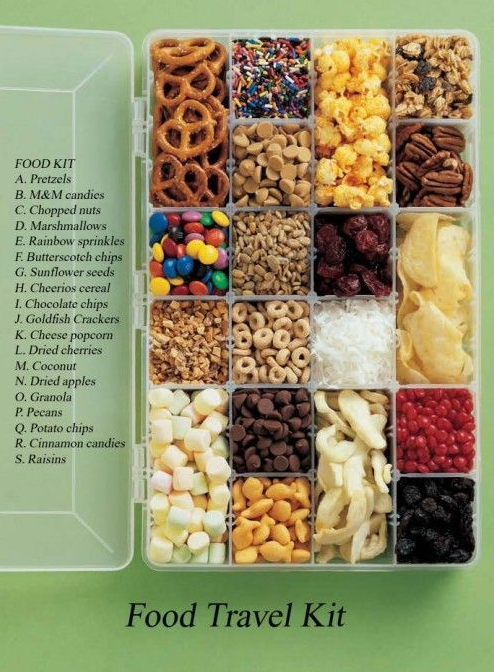Ahh, summer. Sipping cool lemonade by the pool – your favorite book in-hand. The smoky aroma of family barbeques and fierce lightning bolts slicing through the night sky … rocking in a rope hammock, the sand between your toes, and listening to the resounding cheers that accompany an outdoor concert or fireworks display. The days are longer, and yet summer always seems to come and go so quickly.
There are endless sensory pleasures that accompany the summertime. For our friends on the autism spectrum, however, seemingly innocuous seasonal activities may actually present more challenges than enjoyment. Luckily, there are strategies to help our autistic loved ones have better experiences. All that’s needed is a little preparation.
Here are some tips to help ensure that the whole family can happily enjoy all that summer has to offer.
Disclaimer: Autism is a spectrum disorder. Thus, every individual with autism has varying abilities, needs, desires, and sensory sensitivities. These tips may not apply in every situation and should be adapted to suit the individual.
Long car rides can be soothing for some individuals on the autism spectrum and distressing for others. However, packing a few extra items can go a long way in ensuring that all travelers onboard have a safe and comfortable trip.
- Make frequent stops. This not only reduces toileting accidents but is a nice break for everyone from being in the stuffy car. Stopping and staying overnight in a hotel mid-way may make a longer trip more manageable than cramming eight hours of driving into one day.
- Use visual supports. Use pictures, charts, or icons to explain the length of the drive, where you will be going, estimated number of stops, the hotel you will be staying in, the route, etc. It may also be helpful to provide a picture-oriented activity schedule.
- Pack a sensory toolkit. Being in the car for too long can be too stimulating for some, and not stimulating enough for others. This website has many great ideas to help prevent and manage meltdowns. Personalize your sensory tool kit to meet individual needs and preferences.
- Bring snacks. Pinterest has great ideas for snacking while traveling. Don’t forget your cooler! This one even plugs into your car’s cigarette lighter for portable use.

- Plan ahead as much as possible. About 72 hours before your flight, call TSA cares and explain what supports you may need. Use www.ifly.com to find useful information about the airports you’ll be in. Review your airline’s policies online, and consider printing out the relevant pages or a notification card. Review your rights under the Nondiscrimination on the Basis of Disability in Air Travel regulations.
- If you don’t have much notice, get in touch with the airline as soon as you can. Tell the airline as soon as possible what accommodations you need, preferably when you book. Ask for a TSA Passenger Support Specialist as soon as you reach the security line. You can (and should!) do this even if you didn’t have time to call TSA Cares. Airlines like advance notice, but unless you have a large group or require oxygen, most of them don’t require more than an hour to provide accommodations like advance boarding and guaranteed seating. Ask the ticketing agents or the gate agents what accommodations are available to you. You deserve to know about all your options.
- Notify everyone of the accommodations you need. Even if you called ahead, find a gate agent and tell them you need advance boarding or guaranteed seating together as soon as you reach your gate. Tell the flight attendant about any accommodations you need while on the plane. If you need help getting to a connecting flight, tell the attendant that too. He or she can help make sure the right employee is there when you get off the plane or direct you to the next gate agent who will take care of it.
- Have at least one printed copy of your entire itinerary and any help you need. Various airline and airport employees will have an easier time helping you find your way through the airport or getting you to the right people if you have a printed copy of your itinerary to show them.
- Rehearse the day. Many parents and caregivers have found that rehearsing the process of flying is extremely helpful. If you find a Wings for Autism program in your area, you may consider participating. If you don’t have the opportunity to participate in a large program, consider rehearsing activities like taking off your shoes and going through security, boarding the plane, or deplaning at home. You can also read books, watch videos of different parts of the travel process, and visit airports to watch planes take off and land.
Wandering can occur anywhere at any time, though many parents report that their adult children on the spectrum gravitate towards lakes, pools, and the ocean. Drowning often occurs as a result of wandering, and it remains one of the leading causes of death within the autism population. This is why it is especially important to prepare for trips involving water.
- Attend special needs swimming events. Some water parks schedule days or hours for people with disabilities and their families. For example, Sahara Sam’s water park in New Jersey features assistance for guests with disabilities.
- Talk to neighbors. Let neighbors with pools know of your adult child’s tendency to wander, and ask for their cooperation in keeping the pool as secure as possible.
- Don’t forget water safety products. These can include lifejackets, proper footwear, goggles, noodles, and other floatable objects.
- Take caution if you own a pool.
-
- Remove reinforcing or desirable objects from the water when it is not in use.
- Be sure that the pool is fenced in, and use gates that self-close.
- Set up a door and window alarm system that alerts the household of wandering activity.
- Stay connected. Electronic tracking bracelets and other GPS devices can be purchased if your autistic loved one tends to wander or is nonverbal. >>learn more
- Sun protection is key. The effects of sun exposure can sometimes occur without one even realizing it, so remember to lather up with sunscreen and to bring along sunglasses, hats, and lip balm.
- Stay hydrated. Bring lots of extra drinking water to fight dehydration.
For some adults on the autism spectrum, summer storms are fascinating, but for others, they are anxiety-inducing. Storms are tricky because some are more dangerous than others, and, of course, there is often reason to be wary. However, some people with autism experience extreme risk aversion, and view weather as an unpredictable, ominous force regardless of the storm’s magnitude. This outlook becomes problematic when it starts to interfere with sleep or daily functioning. Here are a few ways to cope.
- Create a Weather Safety Kit. Various items can be included, but some examples are a blanket, flashlight, comforting sensory objects, books, and a radio.
- Educate your adult child. Discuss typical weather conditions for your area, how to determine if a weather situation is dangerous or not, and various strategies in dealing with a threatening weather situation.
- Tap into technology. Show your adult child or friend with autism how to check the weather on his/her iPad, television, computer, or smartphone. This skill enables him/her to prepare for weather events on his/her own.
- Validate the fear. It may be easy to dismiss reactions to seemingly harmless weather conditions, but by taking the concerns seriously and providing coping strategies, individuals will take comfort in knowing that they are being supported and understood.
While crowd-drawing events may bring joy and excitement to socially-oriented individuals, they can be a recipe for sensory overload for some individuals on the autism spectrum.
- Prepare the for the event. Read a social story (scroll to page 3 for an example), play games, or watch videos about going to see a show.
- Plan for sensory overload. If your autistic loved one is sensitive to noise, watch the fireworks from a mile or two away or bring earplugs/noise canceling headphones. A body sock or blanket can help mitigate visual overstimulation. >>learn more
- Skip out a little early. To avoid the crowds and traffic, it may be a good idea to plan your exit a few minutes before the show ends.
- Wear proper identification. Especially if your autistic loved one is nonverbal, ensure that he/she is wearing proper identification and emergency contact information. If your adult child will not wear an identification bracelet because of sensory sensitivities, you may want to consider a custom temporary tattoo. >>learn more
- Bring a variety of sensory items. Every individual on the autism spectrum is different, but here are some examples: items to chew, weighted blankets, plush objects, stress balls, a small tent to block out the crowd, snacks, iPad, etc.
- Designate a Safety Space. When attending a crowded event, choose a large object or area as the place to go if someone gets lost. Circle this location on a map (if available) for your autistic friend or family member to keep in his/her pocket.
If you have any great tips that haven’t been shared here, comment and let us know!
About the Author:

Shannon Doty, Coordinator, Special Events and Social Media for Madison House Autism Foundation, tutors a special needs adult, provides social media consulting services, and is an IISS provider for Changing the Lives of Children with Autism. Obtaining her B.A. in psychology from UMBC, her greatest goals are to foster meaningful connections with those on the spectrum and their families, increase autism awareness through social media and blogging, and creatively help to solve problems affecting autistic adults and children. While she is not busy working on the Autism Housing Network, Shannon can be found cooking up culinary masterpieces at her apartment in Silver Spring, MD. She is very excited to be working with Madison House and looks forward to sharing many ideas with this talented and passionate community.








 Would You Let Policymakers Choose Your Home?
Would You Let Policymakers Choose Your Home?



Beautifully written article! I love what Madison House does for the autistic community. Thanks for being a beacon of light for those who need the extra support. Much love!